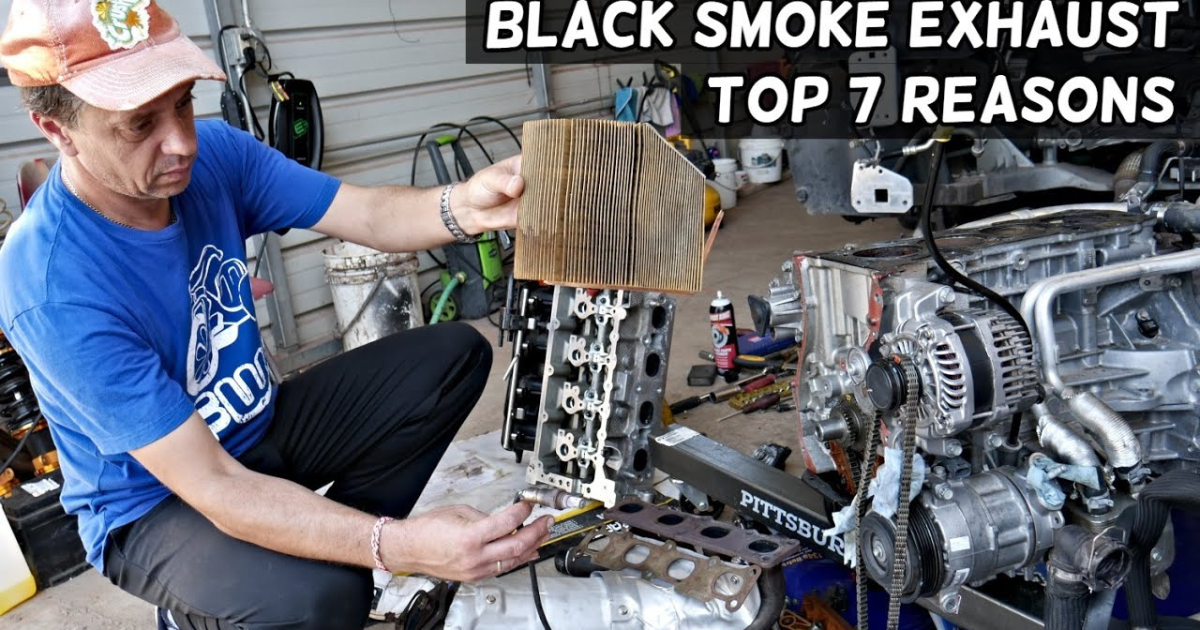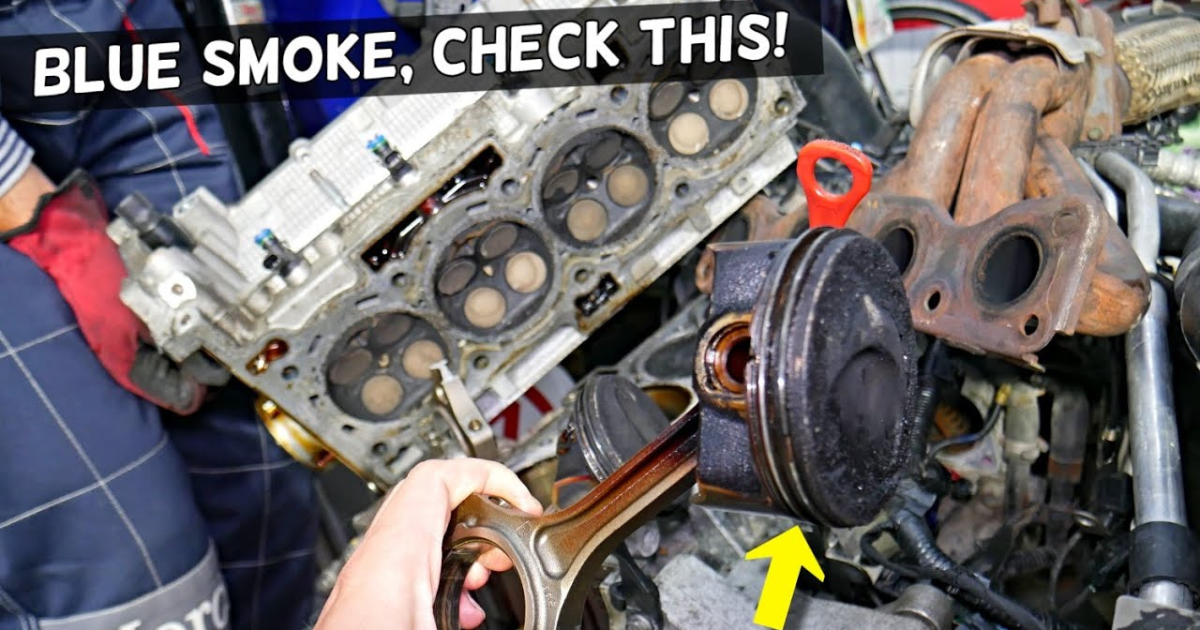Black smoke from the exhaust is a common issue faced by car owners. It is usually caused by the engine burning too much fuel, resulting in thick clouds of smoke coming out of the exhaust. In this article, we will discuss the main causes of black smoke from exhaust in both diesel and petrol engines and provide solutions to fix the problem.
What Does Black Smoke Mean?
Black smoke from the exhaust means that the engine is burning too much fuel. This can be due to contaminated fuel or a mixture of fuel and oil in the engine. While both diesel and petrol engines can experience black smoke, diesel engines are more prone to it. The smoke can be thick and noticeable when the engine is first switched on, during cold weather, or when hard acceleration is applied.
Main Causes of Black Smoke from Exhaust
There are several issues that can cause black smoke from the exhaust. These include clogged air filters, blocked manifolds, malfunctioning fuel injection systems, and other problems. In petrol engines, dirty filters can prevent clean air from reaching the engine, resulting in a rich fuel mixture and black smoke. In diesel engines, the main causes of black smoke are clogged air filters, faulty fuel injectors, bad mass airflow (MAF) sensors, and dirty exhaust gas recirculation (EGR) valves.
Causes of Black Smoke in Petrol Engines
- Dirty Filters: Dirty air filters prevent clean air from reaching the engine, resulting in a rich fuel mixture and black smoke.
- Bad Oxygen Sensor: A faulty oxygen sensor can send incorrect information to the engine control unit, leading to poor fuel efficiency and black smoke.
- Faulty Auto Computer: A faulty auto computer can cause several issues, including black smoke from the exhaust and stalling.
Causes of Black Smoke in Diesel Engines
- Clogged Air Filter: A clogged air filter prevents the engine from burning all of its fuel, resulting in black smoke coming out of the exhaust.
- Faulty Fuel Injector: A faulty fuel injector can cause extra fuel to form a solid carbon residue, which is emitted as black smoke when the car is accelerated.
- Bad Mass Airflow (MAF) Sensor: A bad MAF sensor can register more airflow coming into the system, resulting in excess fuel flowing into the engine and black smoke coming out of the exhaust.
- Dirty Exhaust Gas Recirculation (EGR) Valve: When the incorrect amount of carbon (IV) oxide is reintroduced to the combustion chamber, the EGR valves tend to malfunction, resulting in black smoke coming out of the exhaust.
- Excessive Carbon Deposits: Cars that have covered more miles are prone to carbon buildup in critical areas, leading to improper functioning and black smoke coming out of the exhaust.
How to Fix Black Smoke from Exhaust
Most cars experience black smoke now and then, but it does not always indicate a serious problem. If the smoke clears as the engine warms up, there is usually nothing to worry about. However, if the smoke continues after the car warms up, it is a cause for concern. Here are some solutions to fix black smoke from the exhaust:
- Petrol Engines: Clean or replace the air filters, replace the oxygen sensors, and repair or replace the auto computer.
- Diesel Engines: Clean or replace the filters and combustion system, check the piston rings, invest in the common-rail fuel injection system, and use fuel detergent additives.
Conclusion
Black smoke from the exhaust can be a frustrating and potentially dangerous issue for car owners. By understanding the main causes of black smoke in both petrol and diesel engines, you can take the necessary steps to fix the problem and prevent any damage to your car’s sensors and catalytic converter. Remember to seek out the services of a professional auto mechanic if necessary.





